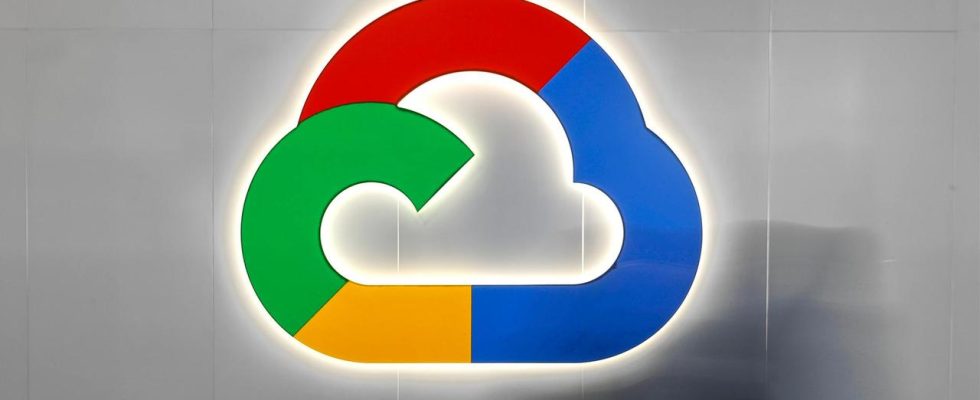Tech companies are increasingly being valued on the stock market based on their success in artificial intelligence and cloud services. This is currently evident from Microsoft and Alphabet, who have presented their latest figures.
The tech giants Microsoft and Google parent Alphabet reported a significant increase in sales and billions in profits for the last quarter. Nevertheless, investors on the stock market reacted differently to the numbers. While Microsoft shares rose by almost four percent in after-hours US trading last night, Alphabet’s share price fell by almost six percent. The picture on the German stock market looks similar today.
The reason: the different development of the all-important cloud business, i.e. software services that are made available to customers via data centers. Microsoft recorded strong growth in its cloud offerings, while Google’s division missed analysts’ expectations.
Microsoft is booming thanks to cloud and AI
Microsoft, which recently received the final green light for the 69 billion euro takeover of the video game provider Activision Blizzard, continues to benefit from the boom in software with artificial intelligence (AI), which is also spurring demand for the group’s cloud services. Sales growth on the Azure cloud platform climbed to 29 percent in the last quarter from 26 percent in the previous quarter.
Overall, the Windows Group’s sales increased by 13 percent to $56.5 billion in the last quarter. Profits rose 27 percent to $22 billion from July to September. Thanks to the strong business in the “cloud”, the company was able to exceed expert expectations for the past quarter. As with almost all technology companies, experts are paying particular attention to how the new enthusiasm for AI impacts the business.
“The results show that AI products are driving sales and are already contributing to revenue and profit growth,” Jesse Cohen, senior analyst at Investing.com, said of the situation at Microsoft. The company holds a billion-dollar stake in OpenAI, the maker of ChatGPT, and integrates the technologies across its own product range. Microsoft recently introduced an AI “copilot” for Microsoft’s Office programs, which is intended to analyze, among other things, content from emails, calendars, chats and documents.
Google makes investors skeptical
Alphabet’s subsidiary Google, on the other hand, is competing with the AI search engine “Bard”, which is not yet considered as powerful. The search engine operator’s advertising business remains strong, but growth in its cloud business has disappointed investors. At the group level, revenues of a good $8.4 billion fell short of market expectations despite a jump of around 22 percent. And while the division generated an operating result of $266 million, analysts on average had expected a much better $430 million.
Meanwhile, Alphabet’s quarterly profit jumped by more than 40 percent year-on-year to almost $19.7 billion. A change in depreciation on servers and network technology also contributed around $760 million. Google also deferred tax payments in the second and third quarters. Now $10.5 billion in taxes have been paid, which will be recorded in the final quarter, said CFO Ruth Porat.
“Although Alphabet beat estimates for quarterly earnings and revenue, investors were disappointed by the relatively weak performance of Google’s cloud platform,” Cohen said. “It risks falling further behind Azure and AWS.” Google recently opened its first German data center for commercial customers in Hanau.
AI hype is also driving cloud services – as well as the power consumption
Numerous corporations are currently pumping billions into new AI technologies. The hype, in turn, is driving demand for cloud services, as such applications require specialized high-performance computers. According to a study by real estate agent Jones Lang LaSalle, the installed computing power of all operators at the European nodes alone doubled to 114 megawatts in the second quarter – a record.
However, the systems have a common problem: they consume enormous amounts of energy, especially during the training phase. “The training of ChatGPT3, the predecessor of the current ChatGPT, is said to have consumed 1,300 megawatt hours of electricity. The development of ChatGPT cost 4.6 million dollars – mainly for the electricity,” recently calculated ARD-Internet expert Jörg Schieb.
Researchers are now warning that energy consumption in data centers will continue to rise. “AI tools consume a lot of electricity, and the trend is increasing,” said the managing director of the Hasso Plattner Institute (HPI) in Potsdam and head of the artificial intelligence and sustainability department, Ralf Herbrich, to the dpa news agency. Data scientist Alex de Vries from Amsterdam even compares energy consumption with that of entire countries using a search engine that works with AI.

